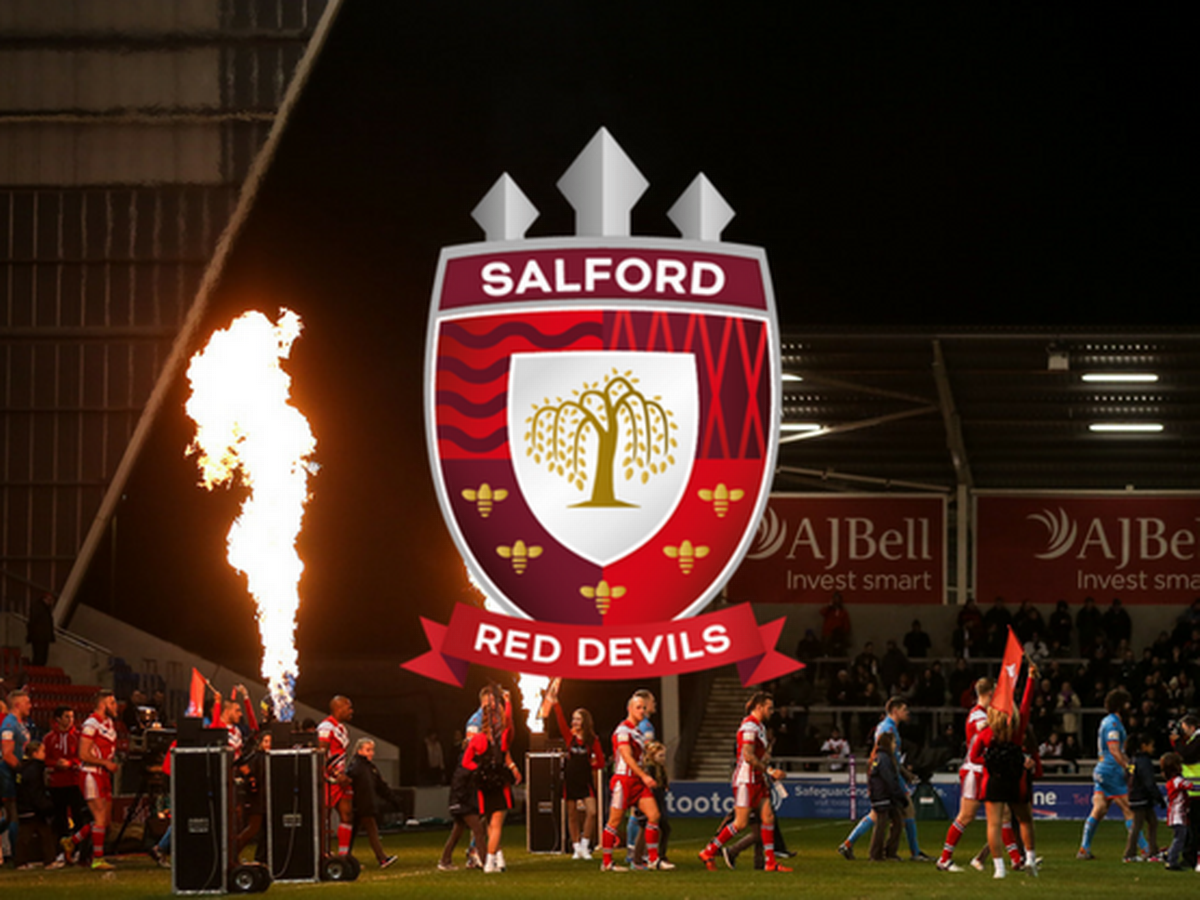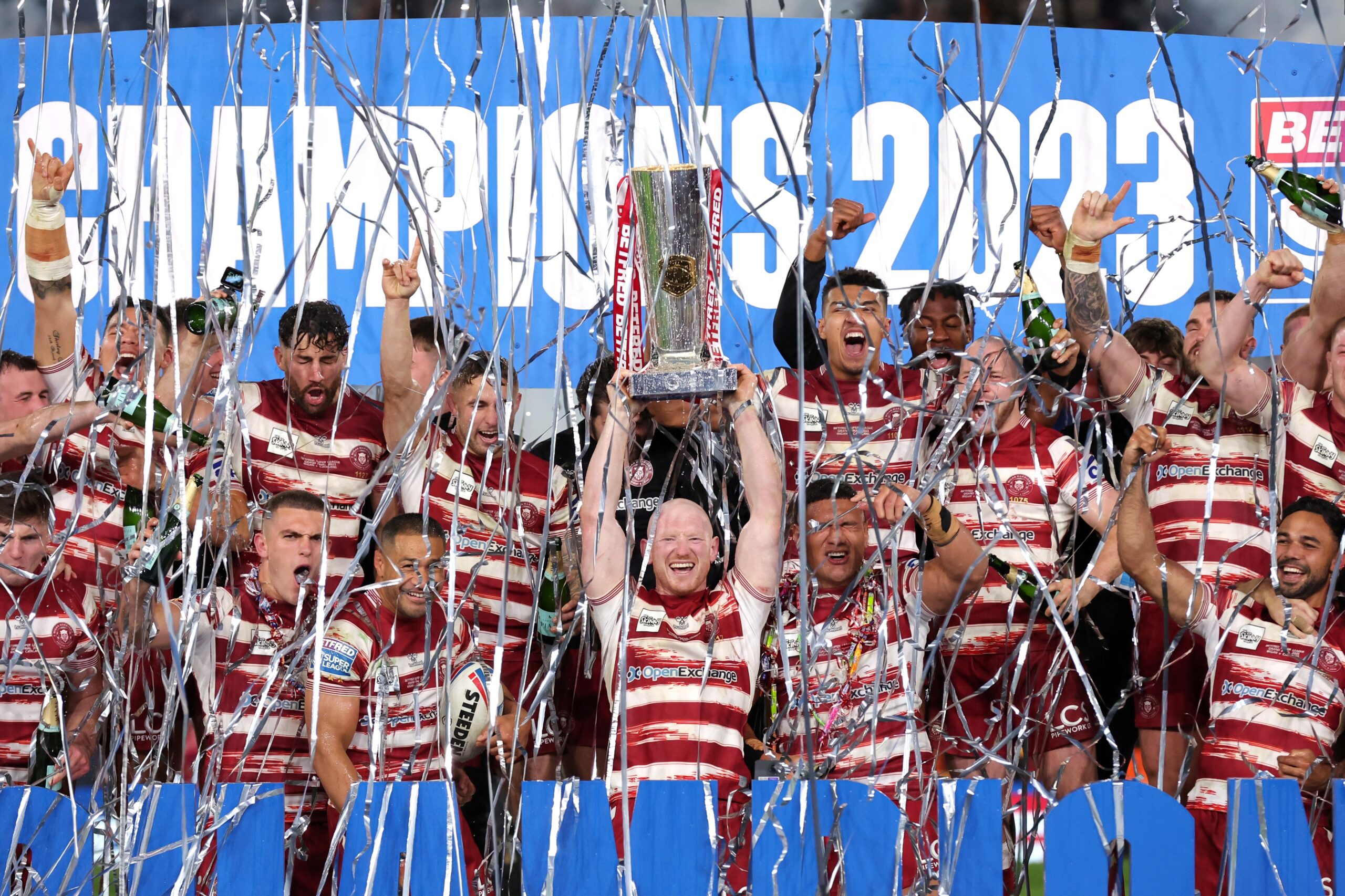I’ve been saying for some time that Rugby League in Great Britain, and Super League in particular needs fixing.
In 1996 Rugby League in Great Britain was given a whole lot of money to help try and form an elite club competition that would provide broadcasters with a nice amount of content they could show on pay television. Unfortunately that goal was lost in a haze of stuff ups and mismanagement, something that continues to this day.
So what if we could press the reset button on everything? What if we decided to make radical changes to Rugby League in Great Britain with the same willingness for change that we once had all those years ago? What if the game was offered more money if it adopted big changes?
Below I’ve had a look through some of the changes the game could make to possibly improve how Rugby League in Great Britain is run and make it more sustainable.
This is not the one and only solution. This isn’t necessarily what I would change right now. Its just one direction the game could go in and hey, it can’t be any worse than what is happening right now can it?
So lets press the reset button on the creation of Super League. What would happen if…
Cutting Super League Back To A Ten Team Competition
Right now Super League is a competition with have’s and have not’s. I would be looking to eliminate as much of that gulf as I possibly could by cutting Super League back to a ten team competition, and sending the remaining clubs back down to a level they would be able to compete in without spending themselves to death.
I would make it clear to the teams taking the step down a division that, this is not a set back. This is a chance for them to compete on an even playing field for once. In a sense, I want these teams to spend their time in the lower division gathering their strength so that one day I can promote them back up into what will be a stronger Super League competition and at a time when they have their finances and facilities up to the level needed to compete in Super League.
My realigned divisions would look like this:
Super League Competition
Wigan
St Helens
Leeds Rhinos
Warrington Wolves
Hull FC
Bradford Bulls
London Harlequins
Catalan Dragons
Hull KR
Huddersfield Giants
That is a much more even competition with less struggling clubs, less fight over the elite talent base, more broadcasting money to go around and a much more focused, elite competition.
The Championship
Castleford Tigers
Wakefield Wildcats
Salford Reds
Widnes Vikings
Wrexham Crusaders
Halifax
Dewsbury Rams
Sheffield Eagles
Leigh Centurions
York City Knights
Everyone else would filter down into the next division.
That there is two divisions of good strength where by teams are playing against clubs of a much closer ability than we currently have right now. All of a sudden a handful of struggling Super League clubs are the bigger clubs in The Championship. Instead of being also rans each year, you have a The Co-Op Championship on the line every season and a great battle against other clubs of equal ability to fight it out over a season with.
More importantly, at this level, clubs are not over stretching just to survive. They can budget better, they can live within their means. This will allow them to focus, not just on the mad scramble to survive for the next few months, but to look at long term goals. They will be able to build a better foundation for their clubs and the plan all along is to eventually bring many of these clubs back up into Super League when they have build their clubs up to the right level to be there.
The Draw
I have two options with the draw. One is pretty stock standard, one is a little bit out there and should shake things up a bit.
The first option is that you play everyone in your own division three times. That would amount to a 27 round club competition. It is easy, its safe, and I dare suggest that with the quality of the contracted competition that we would see, clubs would make more money because crowds would be bigger with better quality games to be seen.
The other option available is to play your own division twice (18 games) and then the teams in the other division once (27 games). That draw is a bit out there, and we would see some big scorelines. It would also play havoc with the competition ladders in each division.
On the positive side, it would mean clubs in the The Championship would still get exposure to playing the bigger clubs in Super League. That would help their bottom lines through sponsorship and gate takings and no doubt ease the pain of dropping a division.
The second is not the ideal option, but lets face it, it wouldn’t provide too many more one sided games than we currently see now. In reality it is just allowing clubs in The Championship to compete financially on a better level while still getting Super League exposure.
If you went down that pathway though, why not go all the way. If you decided to go down the pathway that Super League and The Championship were two divisions of one league, why not make it interesting.
You could start The Championship finals early with the top four playing off in week one. In week two you’d be down to the top two teams in the Championship, who could then join the top four Super League clubs in a six team finals series.
That would bring back a bit of the romance of the lower division clubs playing the top teams in the country. It would keep the connection with both leagues relevant. The Co-Op Championship teams might not play in Super League on a full time basis. They might not have the same salary cap, they don’t have the same financial strains of playing in Super League…but they could still win it if good enough!
Resetting The Salary Cap
I would call every club in from both divisions and, off the record, ask what they were spending on players. I’d tell them, if you give me a lower figure than you are really spending, it means I’ll set the overall cap lower than it should be, and you just run the risk of breaching the newly set cap. It would be in their best interests to tell the truth.
I would look to set the cap at a sustainable level so that all Super League clubs could at least spend the majority of the salary cap. More importantly, that new cap would be policed and under the guidelines of the new Super League competition, my cap auditors would be allowed into a clubs offices and be able to look through any documents they asked for.
You will never find a way around the brown paper bag full of money, but at the very least some resources would be spent to even up the competition. At the end of the day you need to convince the big spenders that they will make more money if the worst team in their league is a good quality opponent that will draw them better home attendances, then if we have a competition with three real contenders and the bottom five clubs in the competition not being able to compete on the field with the top five.
Introducing The Import Draft
The number of imports heading to Super League over the next few years is going to slow to a trickle, if not, stop all together. The NRL is raising their salary cap and expanding their first grade squads from 25-30 players. That means they will keep more of their own.
Increasingly the players heading to Super League are either coming for the lifestyle change, or for a couple of seasons before they retire. That is the reality of the situation, and that is something that Super League needs to accept and deal with.
For these players coming over, I would institute an import draft.
All players coming over to play in Super League from outside of the UK (Including English players returning to the comp) would enter into a draft pool. Then, depending on where teams finished their previous season on the Super League ladder, they would get the first selection of the import pool. Last place on the ladder gets the first choice, second last place on the ladder gets the second choice, and so on.
Teams can trade their draft picks to other clubs in exchange for money and junior players that must be under contract for the same number of seasons the imported player eventually signs on for.
This means that, if an import like Danny Buderus is the first choice in the draft by Hull KR, but he only wants to play for the Rhino’s, that’s fine. The Rhinos have to send Hull KR at least one junior player and a set transfer fee in exchange for the rights to Buderus.
This would help equalize talent across the competition and give an extra income to teams that finish at the bottom of the Super League table. It would also still allow top teams in Super League to target the talent they want from overseas.
London Rugby League Football Club
The London Harlequins want a name change and I’m willing to back them. The thing is, I want them to become a team that London itself can be proud of. A team that draws upon all of the things that we know and love about London. I want to end the days where they feel like an experiment or a Rugby League outpost.
I change their name to “London Rugby League Football Club”. I don’t go with a mascot at all, they are London Rugby League club. Their logo would incorporate Tower Bridge as a set of goal posts.
I change their colours to Royal Blue and White. Their jersey wouldn’t be a mess, it would be understated. The type of jersey that you could wear in London without feeling like it was screaming at passers by.
I would look to find the right stadium in the right area. I’m not looking to market to backpackers and Aussie expats, I’m looking to put down roots in a community and market this team to London residents, particularly families. I’d be looking to play as many afternoon games as possible as not to clash with the London night life.
On offer would be a good afternoon out in London, a game you can bring your family along too in a decent stadium and watch a bit of sport while cheering for a team of your own.
It doesn’t seem that difficult to me. It remove that cringe factor that past attempts to market the game have run into. Its a change in mindset. This is no longer a Rugby League team in London. It is Londons Rugby League team. A subtle difference, but an important one.
Wales vs France
I’m looking to save Welsh Rugby League from the complete debacle that has happened with the Crusaders recently. Therefore what I would put in place is a three test series between the two countries to be played every year.
Two tests would be played during the Super League season with the final test to be played after the club season has ended. The first two tests would be played in France with the end of year test played in Wales.
France needs international competition, as does Wales. France also needs the ability to have another big draw during their season outside of the Catalan Dragons.
This would give both nations a focus and an opponent of similar quality to play on a regular basis.
The Return Of The Great Britain Rugby League Team
I would get rid of this ridiculous situation of having a de facto Great Britain team playing under an English flag and return the Lions to their rightful state.
I would have no problems with England, Ireland, Wales and Scotland playing games throughout the season. In fact, if I could push for free representative weekends during the club season, I would have them all playing regular games against each other.
However, when it came down to playing the Four Nations, it would be with Great Britain and not an England team.
Plans For The Future
The idea is that you take the top levels of Rugby League in Great Britain back to a sustainable level. Then, you build from there. The question is, what do you build towards?
Broadcasting Deals
The goal would be to gain more broadcasting money for the game by providing a ten team competition that would offer a broadcaster five games every week to televise. I’d want every Super League game in television.
If Sky is only willing to pay for two or three games a week, that’s fine. I look to sell the other two games to a different broadcaster.
Any Super League game that is not on TV is lost money.
That isn’t too big of a commitment for a broadcaster, its only a few more games than Sky televises now. By having every game in television you would be getting more exposure for the competition and club sponsors. That can only lead to more money for all clubs down the track.
How Expansion Would Happen
The Co-Op Championship would be vital in terms of expansion. It would be a medium term stepping stone for expansion clubs where they could prove themselves ready for the step up to Super League as well as develop their potential player base to be ready to turn out Super League quality talent.
Its lower level of financial strain would be key in allowing expansion clubs to survive over the longer term.
I would never promote an expansion team into Super League over a team from a traditional Rugby League area if they were not in a stronger position to be promoted. If the next best team to be promoted into Super League was Salford or Widnes over the Wrexham Crusaders or another French Rugby League team, then they would get the nod.
Sustainability would be the key word in any move to expand the Super League competition.
The Need For Expansion
Television Broadcasters are the lifeblood of modern day sport. They pay for relevant content that they can show on their TV stations.
Right now, Rugby League in Great Britain only provides relevant content for a small part of Great Britain.
Sky has their own sponsors to please. They do this by getting the highest ratings possible in key demographics. They do this by focusing their content on the widest audience possible. Throw the net wide, look at capture as many different people from different places as young possibly can.
Rugby League in Great Britain doesn’t provide content relevant to enough areas of Great Britain to be able to demand more money.
If the NSWRL has never decided to expand into Canberra, Newcastle, Brisbane, New Zealand, The Gold Coast, North Queensland and Melbourne…it would probably be a semi professional competition right now….if that!
The heartlands need fixed, but the long term goal for Rugby League need to be to provide broadcasters with a competition that can sell across all of Great Britain. When that happens, the game will get the exposure and the money it deserves.
Working WITH The NRL
From 2013 The NRL will be making, on its lowest estimates, AU$200,000,000 every single year just on its broadcasting deals alone. Only a fool would not look at that amount of money and not want to try and secure a piece of it!
I would look at every way possible to secure funding from the NRL and its clubs to try and get them interested in investing in Rugby League in Great Britain.
That might include Super League clubs signing up to an agreement where by they will release certain players to NRL clubs for a set transfer fee that would not effect the salary cap of NRL teams. I would look at maybe maneuvering Super League to be an for NRL clubs to send their fringe first grade players to to get some decent quality football.
I would try and push to the NRL and its club that Super League was a resource of value to them, and in turn get them to invest either time, money or players back into Super League.
Things like a referee transfer system where refs would rotate between the competitions at some level. Putting in place a coaching scheme where young British coaches like Iestyn Harris could go to Australia for a year and learn his trade with an NRL club. If each NRL team took on one English assistant coach, even if he is just there to observe for the most part, by the end of the NRL’s next broadcasting deal they would have invested 80 years worth of coaching experience into British coaches…and that isn’t including British coaches that might go to NRL expansion clubs.
Any time I could get my foot in the door with the NRL or one of its clubs, I’d do it, because the benefits would flow back into the game in Great Britain.
Conclusion
In its current state, Rugby League in Great Britain is like a house of cards. It would be very easy to make the argument that all of the clubs that we have seen go bust in recent season are that house of cards falling down.
Nothing else matters until we have a sound foundation for the game to grow from. We need to ease the financial pressure on most clubs while still allowing for more wealthy clubs to push the game forward.
There are no ideal plans to get this done, the money just isn’t available to do what we all want. That is why the game needs to take a step back and make financial stability and sustainability its bread and butter.
Until clubs can pay their own way and exist on their own two feet rather than needing a handout by a rich backer, Rugby League in Great Britain will continue to struggle.
You need to get back to having a sustainable game, and then from there you can look to make more money through expansion.
While the above idea may not be idea, they are probably a hell of a lot more realistic than most other ideas. In some ways its a bit depressing, but it is the reality check that Rugby League in Great Britain needs.








